Along the undulating mountain road
Spiraling up to the Wei Yin Tea Estate.
Fields of tea trees come into view like a sea of green.
Amidst the mist and clouds,
Clusters of dew-covered tea trees
Stand on the terraces of Mount Handedan.
Fresh air
Brings with it a refreshing fragrance.
A natural landscape painting of a tea village is formed.
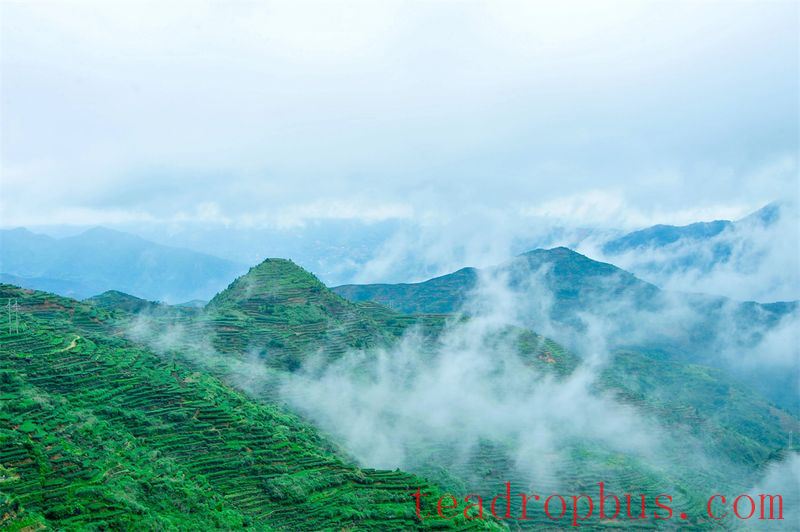
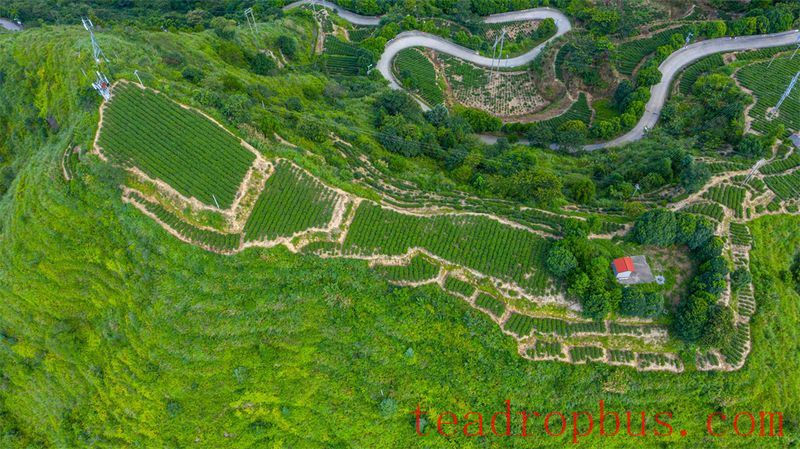
▲Tea plantation base
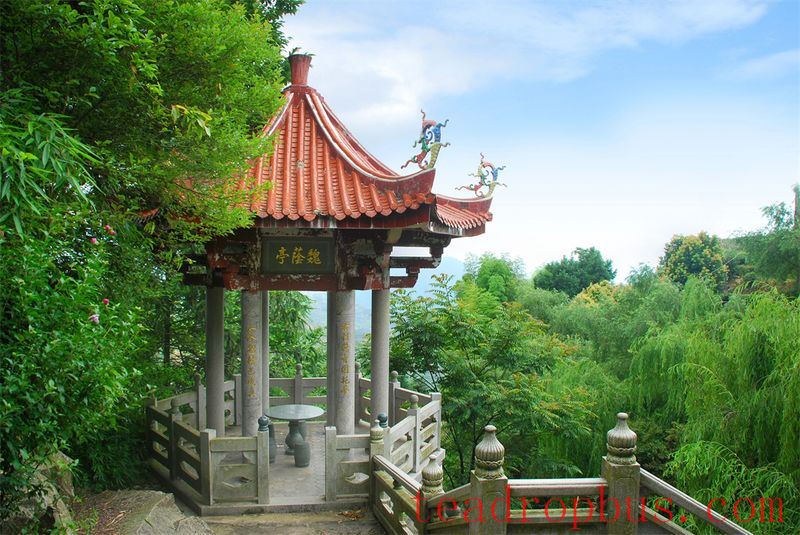
▲Wei Yin Pavilion
The Wei Yin Tea Estate
Is located in Songyan Village, Xiping Town.
At an altitude of over 1,200 meters,
It is nestled between Mount Handedan and Mount Guanyin.
The unique natural environment
Is described as “birds singing makes the mountains more tranquil,
Wind moves but people remain still,” providing a sense of ease.
This creates ideal conditions for the growth of Oolong tea and Tieguanyin,
And the development of their superior characteristics.
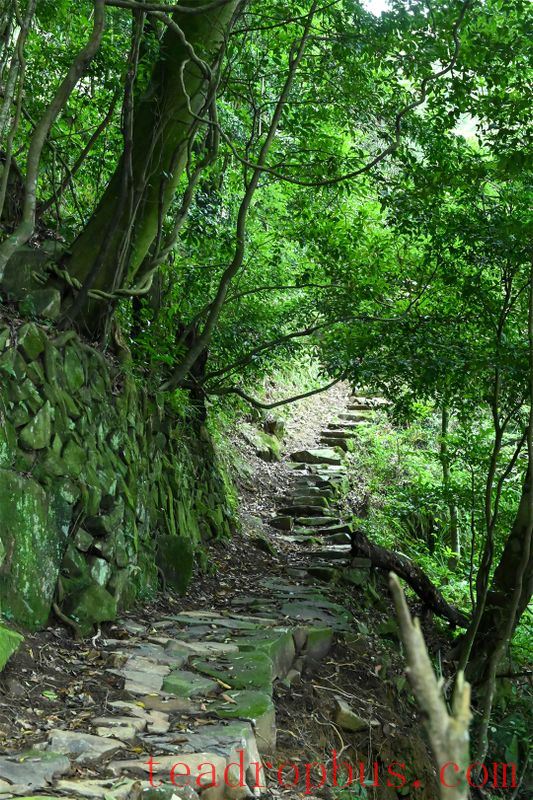
▲Ancient Tea Path
Within the tea estate,
You can walk along the ancient tea path through the mountains.
Treading on muddy loess and moss-covered stone steps,
A gentle breeze passes by,
Making the tea trees sway gently.
In the distance, the sounds of roosters crowing and dogs barking
Mingle with the gurgling of water,
Composing a song unique to this tea village,
Singing tales of the ancient tea path that have lasted for centuries.
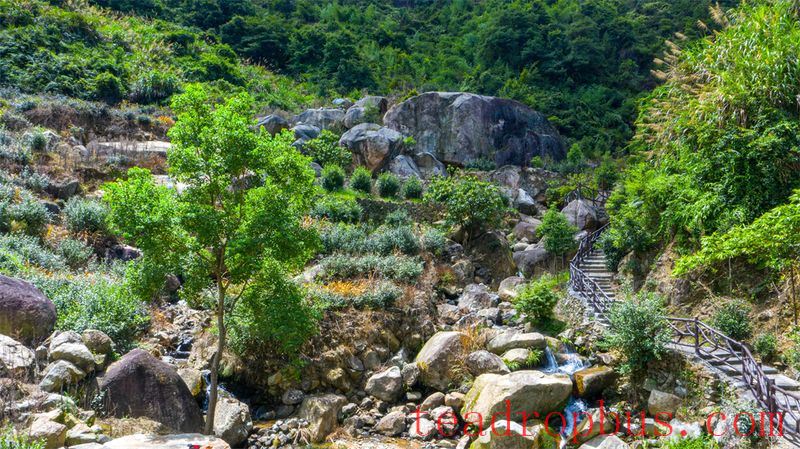
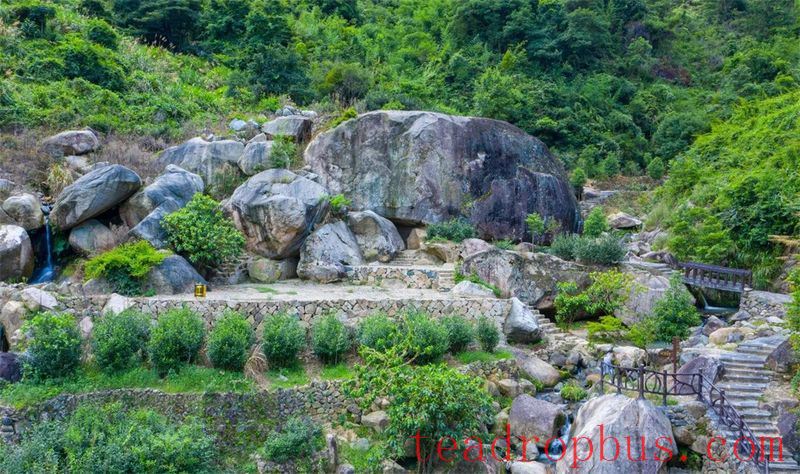
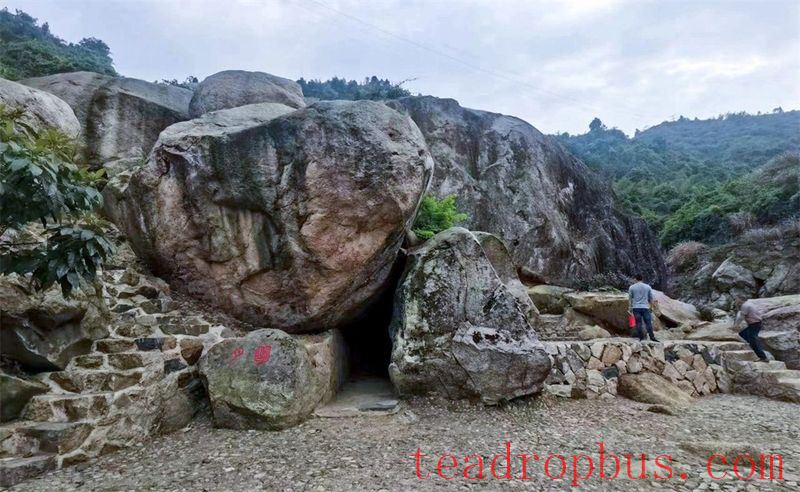
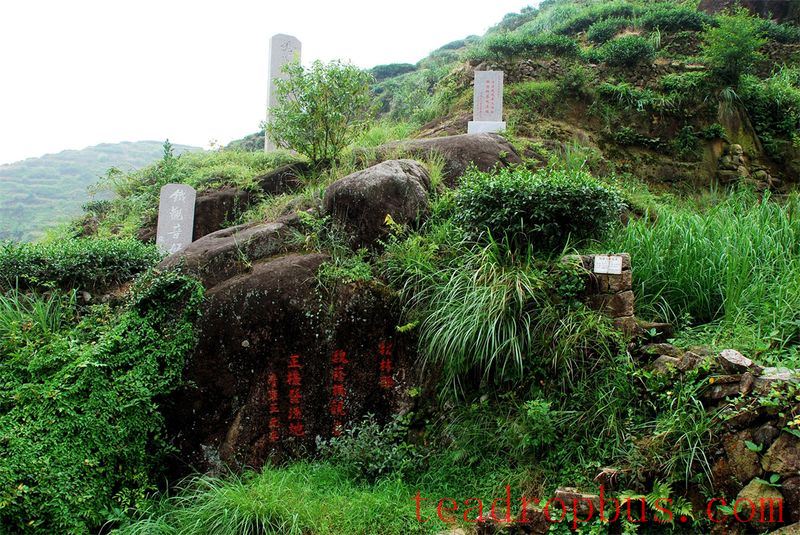
▲Mother tree of Tieguanyin
Birds singing and flowers blooming accompany you all the way.
Descending from the ancient tea path,
Upon reaching the end,
The sound of clear water greets your ears.
Among several rocks,
A reclining statue comes into sight.
The old man raises his brows and smiles,
This is where Wei Yin discovered Tieguanyin.
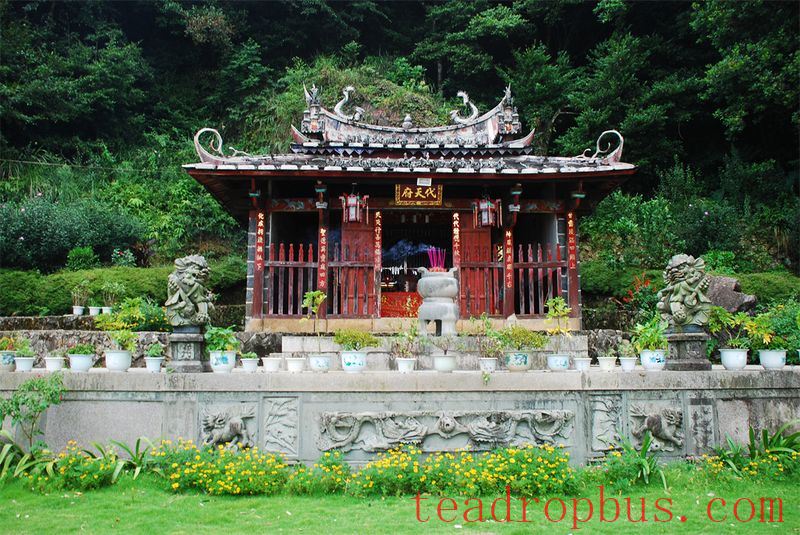
▲Daifu Temple
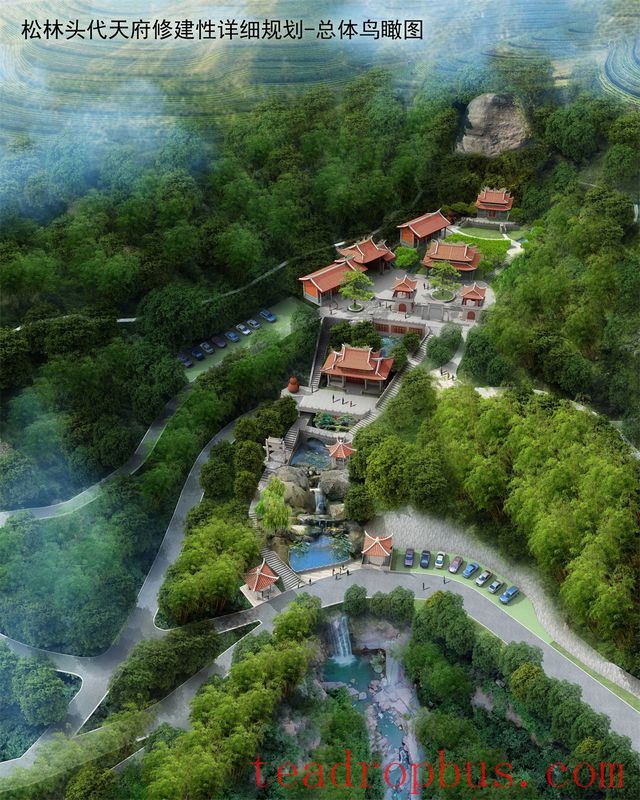
▲Detailed planning of Daifu Temple in Songlintou – General bird's-eye view
Amidst the verdant tea trees covering the mountains,
Lies a small temple named Daifu Temple.
It enshrines five local “Kings” as objects of worship.
The temple houses a plaque inscribed with “High Mountains and Bright Moon”
By the Qing dynasty official Li Guangdi,
Said to have been written while he was savoring tea.
According to the villagers who guard the temple,
When local tea farmers are about to venture out to conduct tea business,
They often light incense in the temple
To pray for smooth sailing and prosperous business.
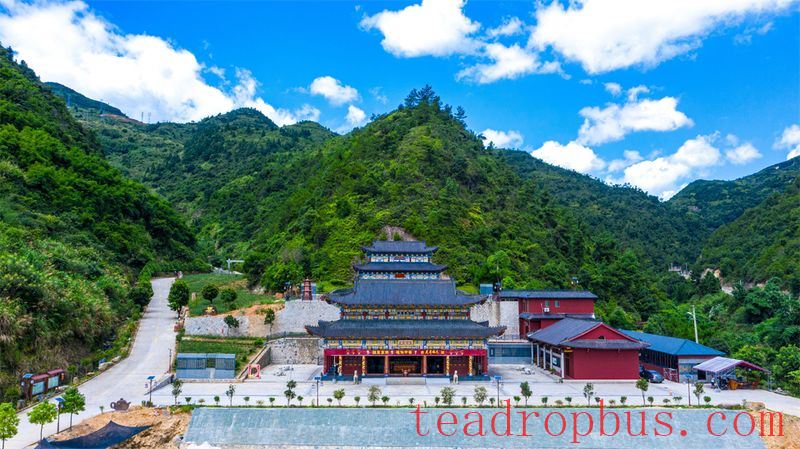
▲Cha Chan Temple
The Cha Chan Temple at the foot of Mount Guanyin in Songyan
Vividly displays the charm of the fusion of tea and Zen.
It is a representative building of our county's Tea culture tourism.
The environment is solemn and quiet, surrounded by mountains,
With two streams converging.
The temple includes main buildings such as the Guanyin Hall, Tea Sage Hall,
Tea Library, and Tea People Hall.
Among them,
The Tea Sage Hall enshrines
Sages of tea such as Shen Nong, Lu Yu, Cai Xiang, Su Liang, and Wei Yin.
The rich and enduring tea culture is condensed here
And spread by pilgrims batch after batch.
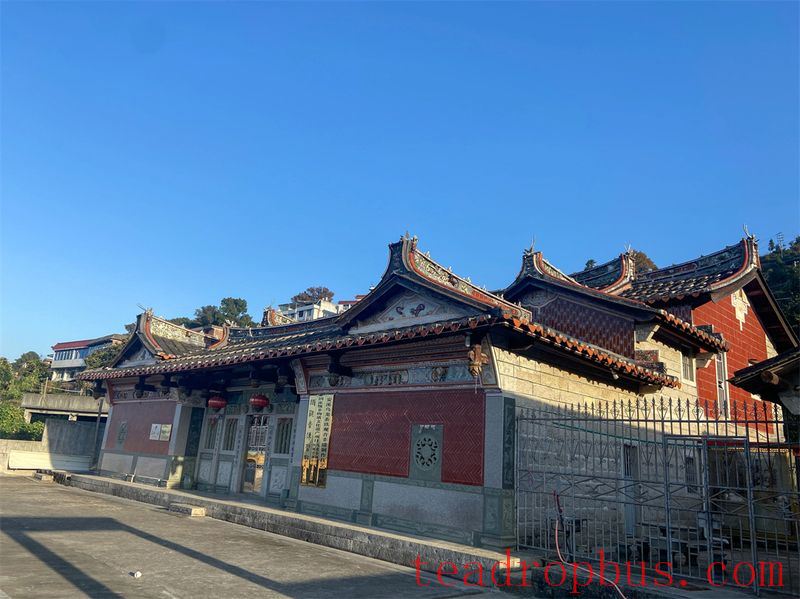
▲Tieguanyin Practice Center
In the Chengdong Industrial Park,
The Wei Yin Famous Tea Tieguanyin Cultural Park
Transports you to what feels like an isolated world of tea.
Here, there are functional areas such as the “Tieguanyin Tea History Museum,”
“Tea Museum,” “Tieguanyin Culture Square,” and “Tea Art Hall.”
Receiving over 250,000 visitors annually free of charge,
It has become an important window for promoting Tieguanyin tea culture in Anxi.
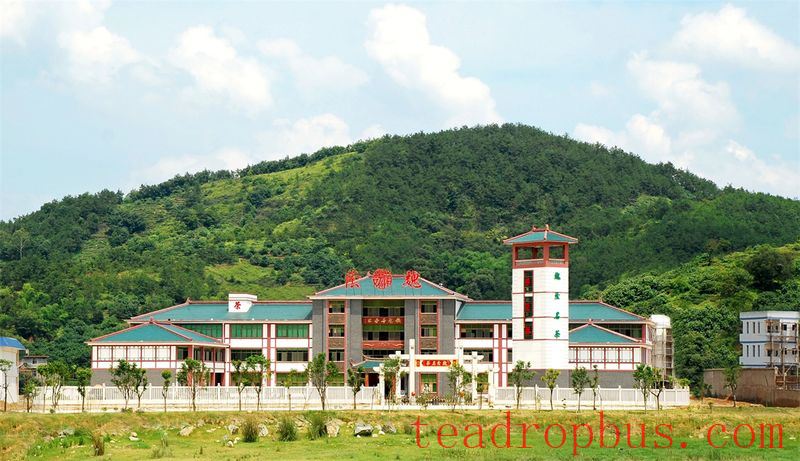
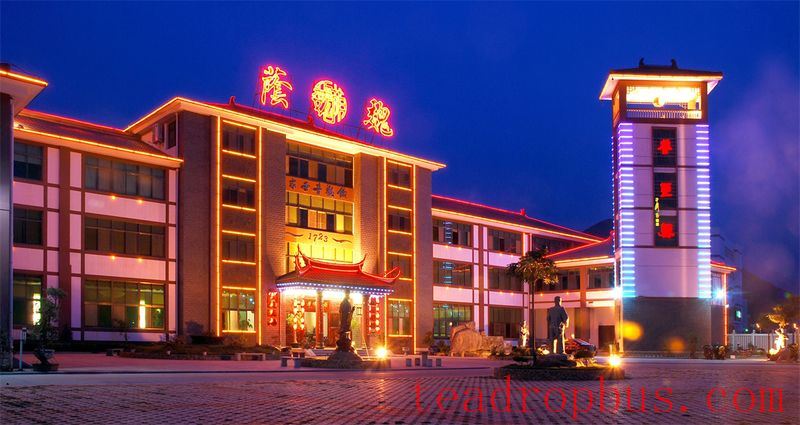
▲Wei Yin Famous Tea Tieguanyin Cultural Park
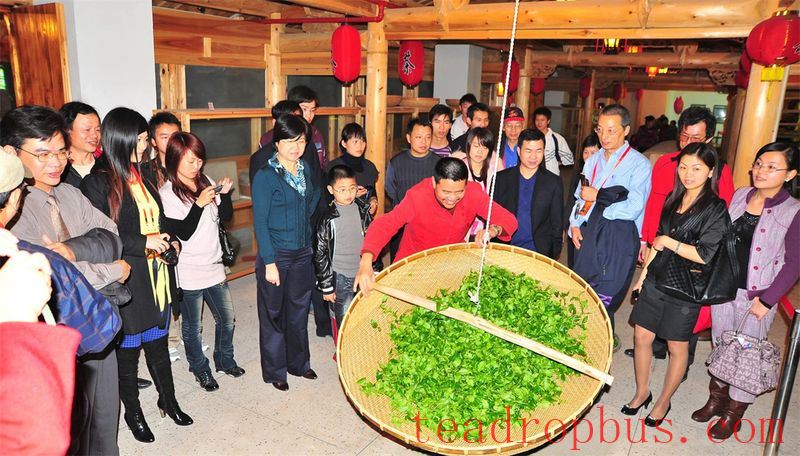
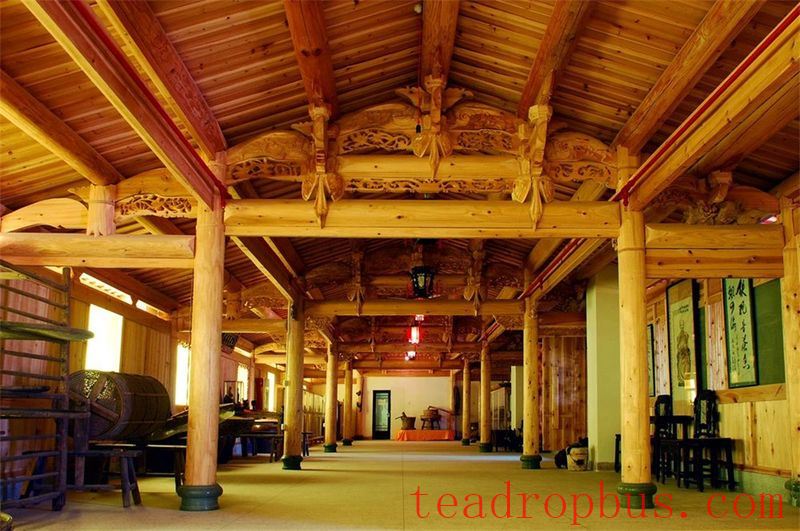
▲Tieguanyin Tea History Museum
The current Wei Yin Tea Estate
Has developed a premium tourist route that includes the Tieguanyin Cultural Park,
Cha Chan Temple, fragrant tea houses,
Tieguanyin primary processing factory,
and the Oolong General Temple, among others.
It has become an